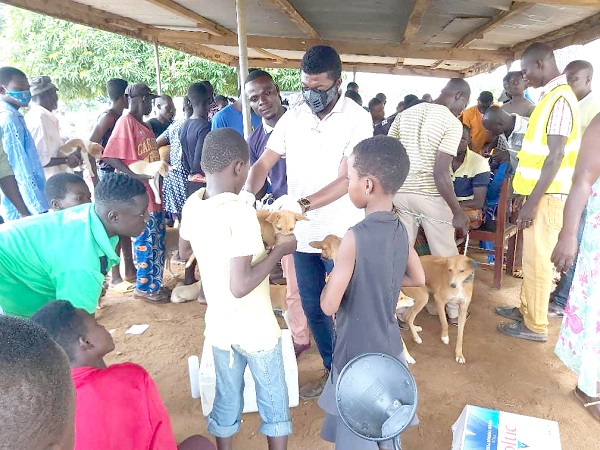
Test animals for COVID-19 — Veterinarian
A Senior Lecturer at the School of Veterinary Medicine, University of Ghana, Dr Richard Suu-Ire, has underscored the need for animals in the country to be sampled and tested for COVID-19 in order to ascertain whether they have the disease or not.
Such a move, he explained, would help the country to know which particular animals had the virus to enable it put in place the necessary measures to prevent such animals from infecting human beings.
He said currently, Ghana and other countries in Africa were not doing any animal testing or surveillance for COVID-19, pointing out that it was not the best since “it was expected to look for the disease in animals, take their samples and test for them.”
Testing
“We are only testing human beings, what of the animals? That is not the proper way to control diseases. You should approach it from all corners; from the animal corner to the human corner. We are only doing curative, we are not preventing.
“We need to take samples from our domestic cats, dogs and all other domestic animals, zoo animals and wild animals, and test to see whether they have COVID-19 or not, and you will be very surprised some of them have it,” he said.
Dr Suu-Ire raised the concerns in an interview with the Mirrror ahead of this year’s World Veterinary Day observed on April 28 and dubbed: “Veterinarian response to the COVID-19 crisis”.
He said although tests conducted by some Western countries had shown that the disease could be found in wild animals, including big cats and Mink, there was no evidence to suggest whether or not domestic and wild animals in Ghana had it.
He said it was possible that while particular animals of other countries had the virus, the same could not be said of those same animals in Ghana, and thus the need for that to be proven.
Probability
“If human beings have the virus, what is the probability that they haven’t infected the domestic animals they keep? We have people who have tested positive for the disease and have pets in their homes but we have not tested the animals.
“These animals may be having the disease, and one day it will come back in a different strain and we will be in trouble.
So when we do outbreak tracing to people’s homes, you just don’t test the human beings; you should test their pets and other domestic animals there too,” he insisted.
On why veterinarians had not taken up the initiative to do the testing of animals, Dr Suu-Ire said they did not have the capacity to do so, stressing that they needed funding for the reagents for testing in the animals in order to do so.
He asked for some of the COVID-19 funding to be allocated for animal testing.
Until such tests were done, he said, everyone needed to be careful with animals now that there was a pandemic, explaining that “every animal has its own diseases that they can transfer to human beings”.
Veterinarians
Speaking on general matters affecting veterinarians, he said there were not many of them to meet the total number required for the country.
That, he said, posed a danger because the few that the country had would not be able to provide effective veterinary health care to the population and effective disease surveillance and public health interventions to know what was going on in the system.
“Besides that, animal health delivery will be poor, and if animal health delivery is poor, it means it is going to affect human health.
“If there is an outbreak of zoonotic disease such as rabies and there is no surveillance to stop it at the animal level, it will go on to spread.
If the veterinary doctor is not there to do effective vaccination, the rabies dog will continue to bite and spread to humans,” he said.
